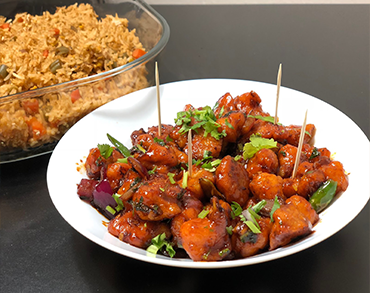Unraveling the Mystery: The Surprising Connection Between Food Preparation and Restlessness
Have you ever felt restless or anxious while preparing food? If so, you’re not alone. Many people report feeling a sense of unease or even panic when they’re in the kitchen. This might seem strange, given that food preparation is often seen as a calming, therapeutic activity. However, there’s a surprising connection between food preparation and restlessness that’s worth exploring. Let’s delve into this intriguing topic and unravel the mystery behind it.
The Psychology of Food Preparation
Food preparation is more than just a physical activity. It’s also a psychological process that can trigger various emotions and responses. For some people, the act of preparing food can bring up feelings of stress, anxiety, or restlessness. This can be due to a variety of factors, such as pressure to cook perfectly, fear of making mistakes, or even past traumatic experiences related to food or cooking.
Understanding the Stress Response
When we’re under stress, our bodies respond by releasing stress hormones like adrenaline and cortisol. This is known as the “fight or flight” response. It’s designed to help us react quickly in dangerous situations. However, this response can also be triggered by non-threatening situations, like food preparation. The pressure to prepare a meal perfectly, the fear of making a mistake, or the rush to get dinner on the table can all trigger this stress response, leading to feelings of restlessness or anxiety.
How to Manage Restlessness While Cooking
Fortunately, there are several strategies you can use to manage feelings of restlessness while cooking. Here are a few suggestions:
- Practice mindfulness: Pay attention to the process of cooking, rather than focusing on the end result. This can help reduce stress and anxiety.
- Take breaks: If you’re feeling overwhelmed, take a short break. Step away from the kitchen, take a few deep breaths, and return when you’re feeling calmer.
- Plan ahead: Having a clear plan can reduce the stress of cooking. Make a list of the steps you need to take and follow it closely.
- Seek professional help: If your feelings of restlessness or anxiety are severe or persistent, it may be helpful to seek professional help. A therapist or counselor can provide strategies to manage these feelings.
Conclusion
While it may seem surprising, the connection between food preparation and restlessness is not uncommon. Understanding the psychological aspects of cooking and learning how to manage stress can help make the process more enjoyable and less anxiety-inducing. Remember, it’s okay to seek help if you’re struggling with these feelings. You’re not alone, and there are resources available to help you.
